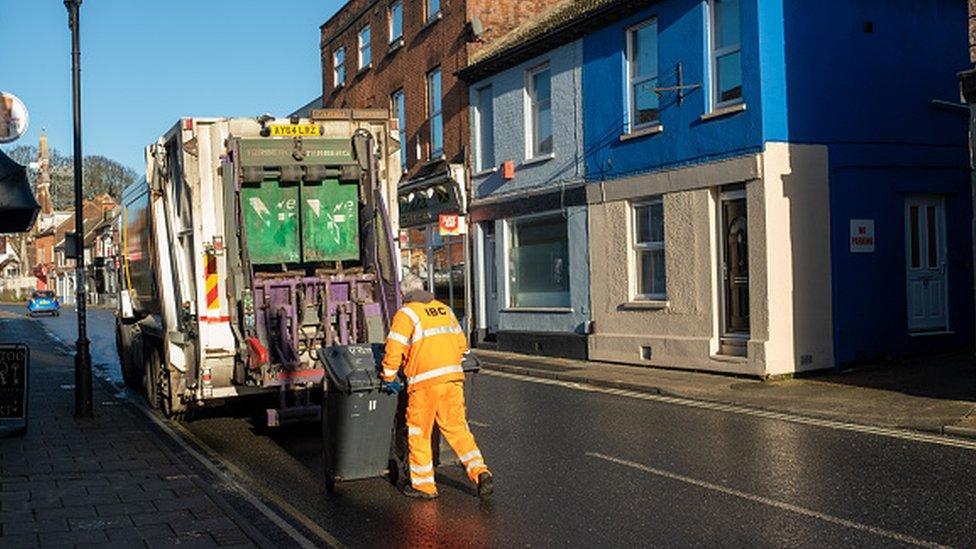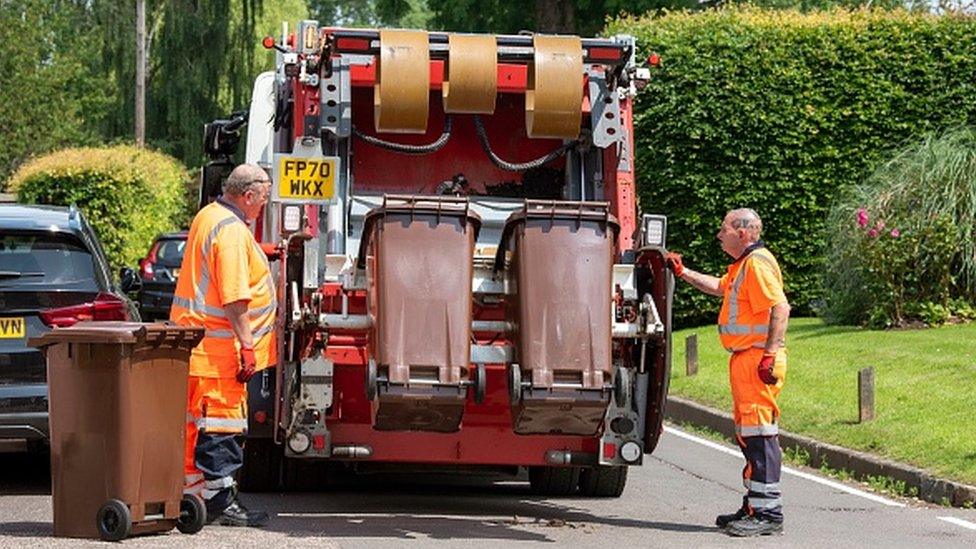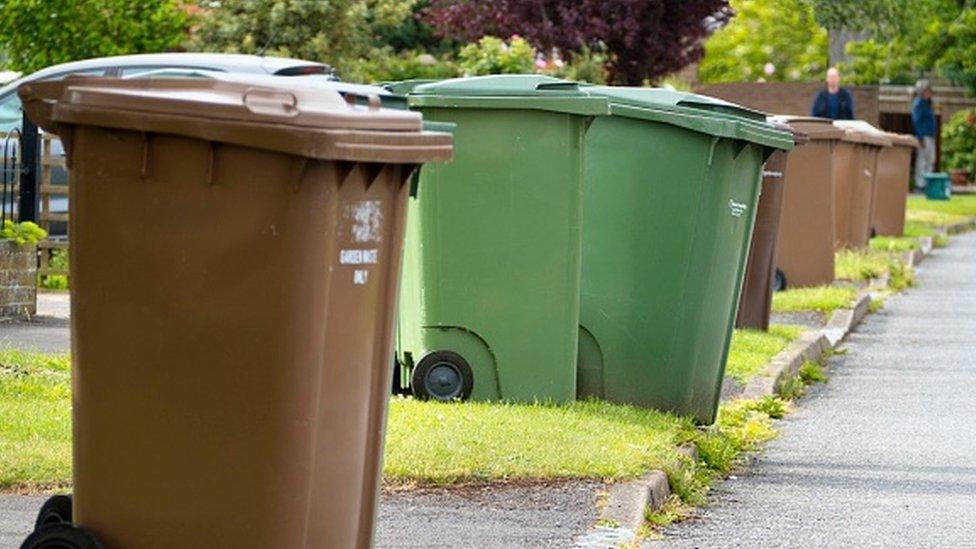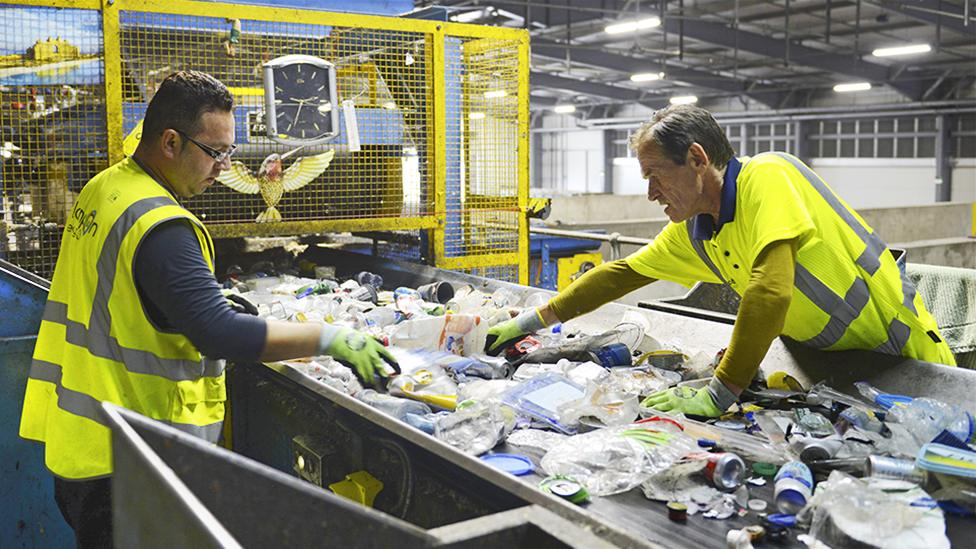Councils in limbo after seven-bin policy scrapped
- Published

The UK government wants to make recycling easier across England
Councils say their plans for collecting recycling are in flux after Prime Minister Rishi Sunak decided not to move forward with a proposal to introduce "seven bins".
Mr Sunak ruled out households needing seven rubbish and recycling bins in an overhaul of green policies this week.
A new plan that lets councils decide how to collect bins has been announced.
But local authorities say they need more detail to make long-overdue decisions about waste collection.
"The frustrating thing is that nobody can progress further, because we still don't have the detail of what we're expecting to deliver," said Charlotte Paine, who leads the Conservative-run South Holland District Council's operational services in Lincolnshire.
"Let us get on with doing that without flip-flopping from one thing to another."
She said national and local government "have spent a phenomenal amount of money" on preparing for national changes to bin collections.
At the moment, councils in England have discretion over how and when waste is collected from households and businesses.
But in 2021, the government passed a new law that required a consistent set of recyclable waste materials to be collected separately.
Local authorities were instructed to collect recyclable waste streams separately unless this was not technically or economically practical, or there was no significant environmental benefit in doing so.
The Environment Act also requires that food waste collection takes place at least once a week.
Under the proposal, the seven bins would have been for glass, paper and cardboard, metal, plastic, garden waste, food waste and general rubbish.
Councils had warned the changes could prove costly, chaotic and unworkable and, as the BBC reported, the rollout of the policy was delayed multiple times.
When announcing changes to net zero policies this week, Mr Sunak said: "The proposal that we should force you to have seven different bins in your home. I've scrapped it."
The change of heart comes after the BBC was told the details of the consistent waste collection rules in England were almost ready to be introduced.
Now the government has announced a new plan that "ensures a requirement to recycle with seven bins will not happen and brings forward a smarter approach".
'Bottom-up'
Under the new system, the same materials will be recycled across England, but they will not need to be separated at home, the government says.
"This common sense approach will drive up recycling rates and is designed to work for households across the country," the Department for Environment Food and Rural Affairs (Defra) said.
A Defra source said councils would still have to collect seven different waste streams, as they are required to do under the Environment Act.
But the government will leave it up to local authorities to decide how they collect those separate streams, and how many bins households will need.
It is being described as "bottom-up" rather than a "top-down" approach.
The full details of the new system - and whether changes need to be made to the Environment Act - are due to be announced shortly.
Ms Payne said "the food waste element is still the biggest climate question mark".
"The weekly food waste will have to be a separate one," she said. "That's going to have the biggest impact on councils and the public."
The cross-party District Councils' Network, external (DCN) - part of the Local Government Association - welcomed the move towards local discretion about how local authorities collect waste and recycling.
But it said "the policy vacuum" had left councils unable to take decisions on how to improve waste services because they did not know if their plans would be in accordance with the government's rules.
"When we are clear about the full implications of the Prime Minister's announcement, our intention is to invest in making our services even better, both for our communities and for the local and global environment," said Sam Chapman-Allen, Chairman of the DCN.
"We look forward to seeing the detail. In particular it is essential that councils are fully funded for the costs of implementing any centrally-driven changes."
- Published31 July 2023

- Published4 April 2023

- Published20 March 2023
